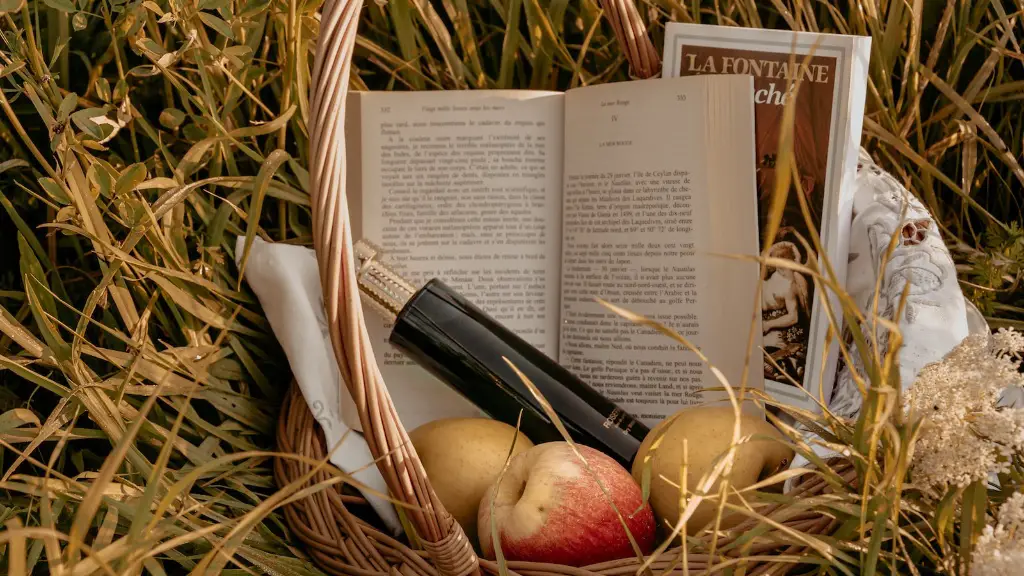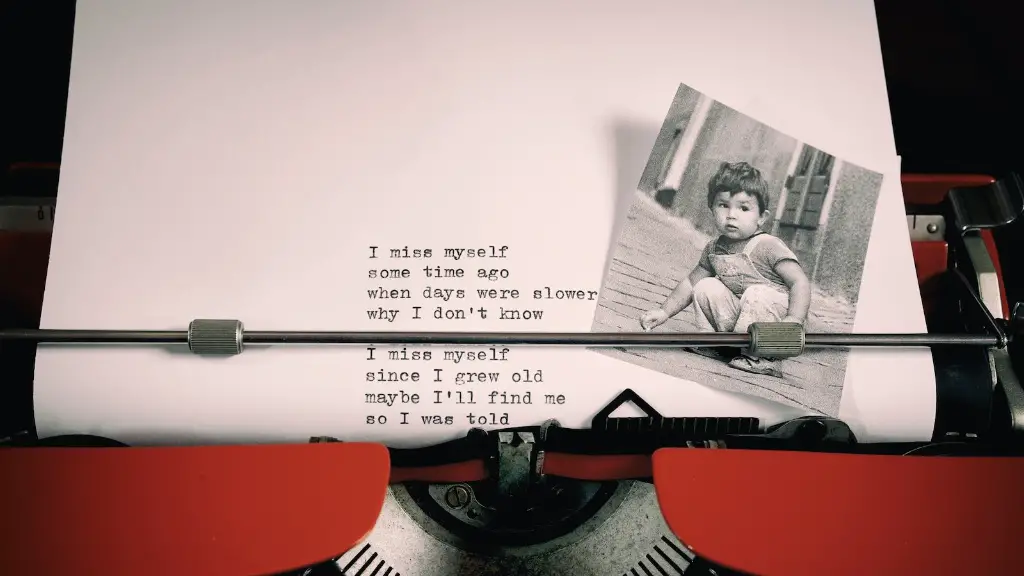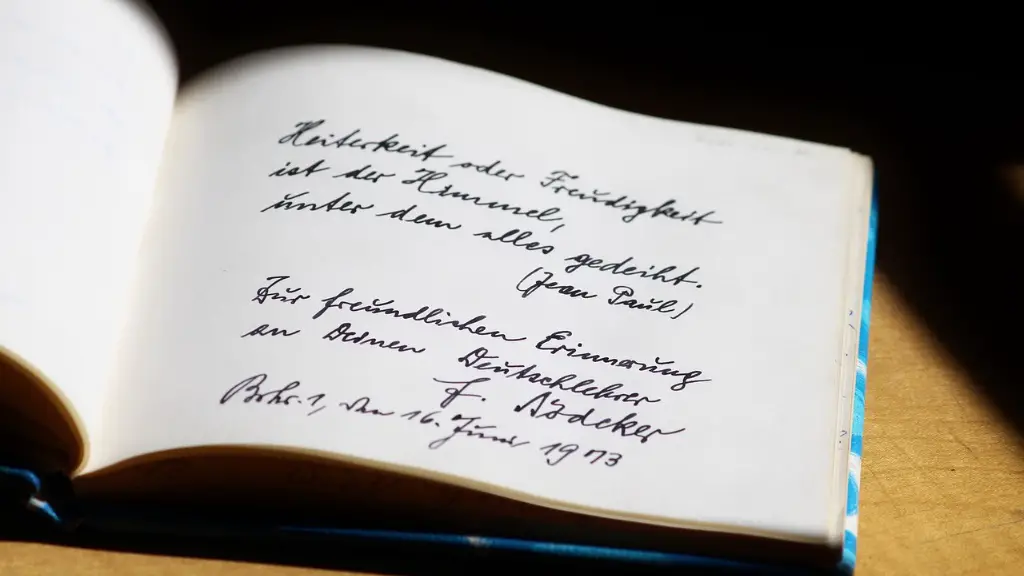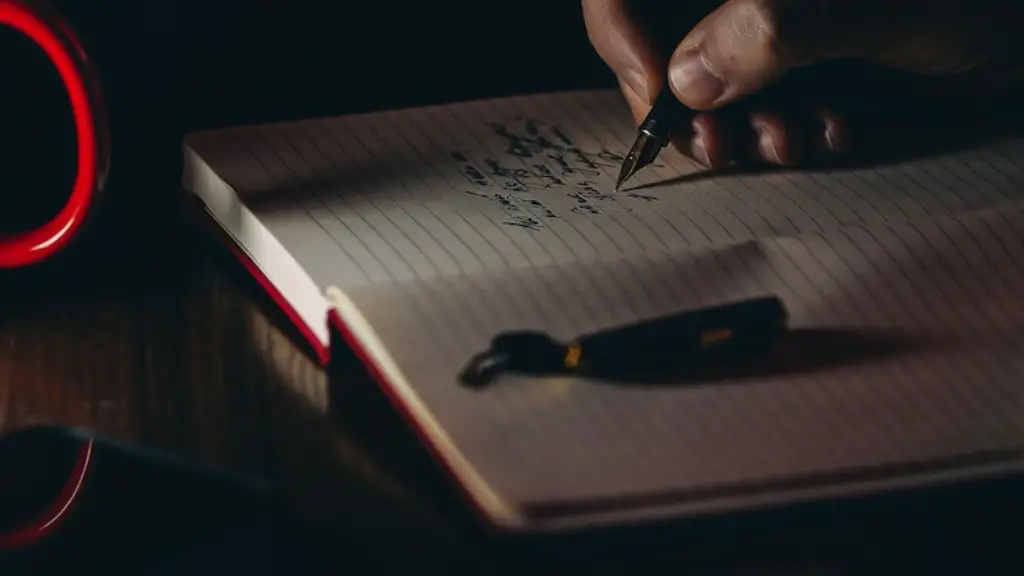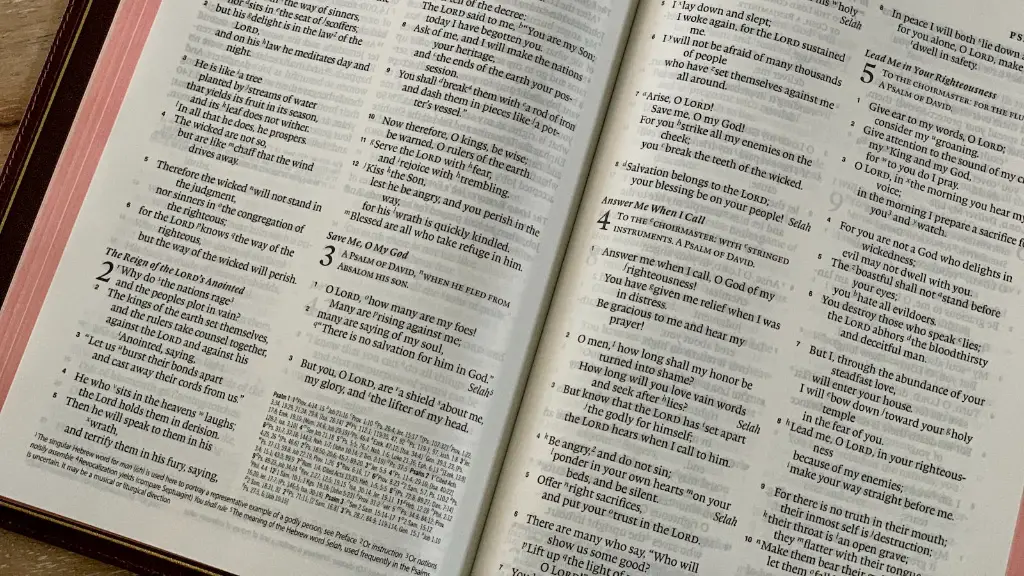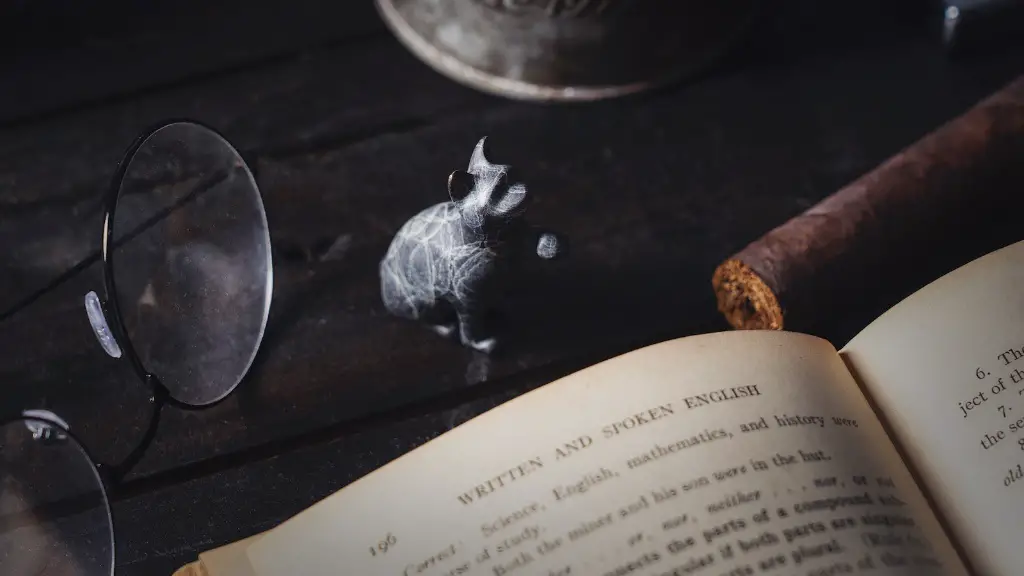When trying to understand what do you call poetry that doesn’t rhyme, one of the key concepts to consider is that there are multiple forms of poetry, which have distinct features and goals, but can still be considered ”poetry” in their own right. From sonnets and haikus, to acrostics and free verse, poetry is a diverse, vibrant and expressive form of communication. In truth, what many consider to be ”poetry” is often not written exactly in a rhyme and meter format.
Free verse, for example, is a type of poetry that does not rely on traditional rules of rhyme or meter to be considered poetry. Free verse can be arranged by the poet however they desire, often following a specific pattern or punctuation, or it can simply flow from the poet’s imagination in a natural, spontaneous way. This diverse form of poetry is typified by organic form and structure, and while often inspired by traditional verses, it is defined by its deviation from traditional conventions. Instead of rhymes, free verse relies on imagery, symbols and other tools to draw upon the senses and to capture the emotion of the poem.
Narrative poetry is another form of poetry that does not adhere to traditional conventions of rhyming. Rather than using rhyme, narrative poetry takes its form from the story it is telling. These poems often fold in elements of traditional poetry such as repetition and rhythm, but the structure is dictated by the content rather than a predetermined pattern. Narrative poetry may also incorporate characters, settings and elements of fiction, creating a distinct world for the reader. Furthermore, narration often relies on the use of metaphor and simile to illustrate deeper meanings in the story. No matter how it is arranged, narrative poetry can display a unique, moving perspective.
Conceptual poetry is a style of poetry that focuses more on idea than form. Instead of using devices such as rhyme and meter, conceptual poetry seeks to express an idea or a thought through the arrangement of words, often in an elliptical or surrealistic fashion. Conceptual poems are often designed to challenge the perception of the reader and to evoke an emotional response. Unlike other forms of poetry, these poems often require a willingness to interpret the poem and look for a deeper meaning.
Finally, one can consider a newer, growing form of poetry known as rap or hip-hop, which often does not rely on traditional rhyme patterns. Similarly to free verse, rap and hip-hop poetry often utilizes the rhythm of sentences to convey a message, even when there is no visible rhyme. Like narrative poetry, rap and hip-hop often incorporate stories and characters, making them engaging and entertaining. Rap and hip-hop poetry often requires skill and practice to master, and like any form of poetry, it can be incredibly powerful when done right.
Imagery and Metaphor
When thinking of poetry that doesn’t rely on rhymes, imagery and metaphor are essential elements to consider. Allowing the poet to not only capture a physical sensation, but emotions and sensations, making their words more vivid and engaging. Through imagery and metaphor, the reader is able to engage with the poem in a more meaningful manner, as a literal image and a figurative image are presented to the audience. As such, the entire poem can be transformed from a piece of text to a meaningful artistic performance.
What’s more, imagery and metaphor can also add additional elements to a poem. For example, a poem might explain a scene or a person, but with careful use of imagery and metaphor, one can add layers of emotion and meaning to the piece. By making thoughtful use of imagery and metaphor, poets are able to create paintings or entire stories through their words, without the need for traditional rhyme patterns.
On a similar thread, poetic devices such as alliteration, assonance, and onomatopoeia may also be employed to create an interesting and engaging form of poetry without the use of traditional rhyme patterns. By using these devices, poets are able to reinvigorate their words, and play with the sound of the piece, without relying on a predictable pattern.
Legions of Possibilities
When it comes to discussing what do you call poetry that doesn’t rhyme, it is important to remember that poetry is often defined by the imagination and technique of the poet. An experienced poet can create powerful, meaningful works without relying on a traditional rhyme pattern. As such, it is important to keep an open mind when it comes to forms and structures of poetry. Ultimately, this allows for the development of new forms of poetry, and the exploration of diverse writing styles.
In addition, it is also important to remember that even when a poet decides to write a poem that does not rely on a traditional rhyme pattern, they can still employ rhyming words but they are used in a purposeful way. As such, the use of rhyming words could be used to emphasize certain words, or to make comparisons or contrasts between certain ideas, without becoming ‘too predictable’.
With all this in mind, what do you call poetry that doesn’t rhyme? The answer is simple: poetry. A lack of a predetermined form, or rhyming words should not limit writers when it comes to their creativity. Instead, unique forms of poetry should be celebrated and explored, creating dynamic works, without relying on a preset rhyme pattern.
Experiment and Exaggerate
Often, when it comes to writing a poem without rhyme, experimentation is encouraged. This allows for a more diverse vocabulary, subject matter, and writing styles to be employed, as the poet lets their imagination, and their passion, run wild. The idea is to surprise the reader, and to evoke a feeling and a response from the audience.
Another significant element when it comes to poetry that does not rely on rhyme is to use exaggeration and irony. When used for the purpose of poetic expression, these tools allow the poet to explore further elements of the poem, such as characterization and tone, without becoming repetitive due to the lack of rhymes. This allows the poet to play with the poem, both in terms of words and meaning.
Finally, an essential element to consider when discussing what do you call poetry that doesn’t rhyme is to show, and not tell. This means that it is important to focus on vivid descriptions and wordplay in order to capture the imagination of the reader. Showing, rather than telling, can be a difficult skill to master, but it is fundamental for any poet who is trying to create powerful and effective pieces without relying on rhyme.
Music and Place
When considering the subject of what do you call poetry that doesn’t rhyme, music is an essential element to consider when discussing these pieces. Poems that are not written in rhyme often rely on rhythm, meter and other musical elements to add emphasis, as well as complexity. Furthermore, musical elements can be used to transition between certain musical elements, providing an additional layer to the piece without repetition.
In addition, the concept of place is also important, as each poet has a personal style that is influenced by their culture and personal experience. This notion of place often means that there is a particularly personal outlook to their work, creating a distinct, recognizable style. This helps to bring the reader into the poem, personalizing the work and creating an opportunity for conversation and connection.
Ultimately, it is important to remember that poetry does not require rhyme to be poetry. Different poetic elements should be valued equally, and an open mind should be employed when discussing and writing different forms of poetry. To answer the question what do you call poetry that doesn’t rhyme, the answer is simple: poetry.
Perception and Emotion
When discussing what do you call poetry that doesn’t rhyme, the concept of perception and emotion should be considered. It is important to remember that poetry is often deeply personal, and it speaks to the perceptions and emotions of the audience. In other words, the poem is not just a piece of text, but it is a way to engage and to make an impression on the reader.
In terms of what do you call poetry that doesn’t rhyme, the answer is broad, as often such pieces are reliant on the reader’s interpretation. By considering factors such as language and context, the reader can gain insight into how the poem is spoken and how the poet intends for it to be perceived. In addition, it is also important to consider how the poem makes the reader feel, as the emotion of the audience is often integral for the understanding of the poem.
Therefore, when it comes to poetry that does not rhyme, perception and emotions are key components when interpreting the poem. Learning how to critically analyze such pieces, and gain an understanding of both the poem and the poet’s intentions, is an essential skill, allowing readers to develop a greater appreciation for such poems.
Using Abstraction
A key factor when it comes to poetry without rhymes is the role of abstraction. Whereas certain pieces rely on literal and conventional language, poetry that does not rely on rhyme often seeks to take the reader on a journey of thought and contemplation. As such, an abstract style of writing is often employed, allowing the reader to delve into the piece and discover their own understanding and interpretation.
When it comes to this form of abstraction, poetic language is often used to create beautiful imagery and a meaningful atmosphere. Poetic words are often chosen to create a balance of sound and meaning, helping to enhance the emotion and impact of the poem. Instead of simply repeating a word or phrase, abstract language can be used to add multiple layers of understanding to the poem, creating a more powerful and impactful piece.
In conclusion, poetry does not need to rely on rhyme or regular meter to be considered poetry. Different forms and styles of poetry can exist, and poets have the freedom to explore different techniques and tools to create unique, emotionally stimulating works. Ultimately, what do you call poetry that doesn’t rhyme? The answer is simple: poetry.
